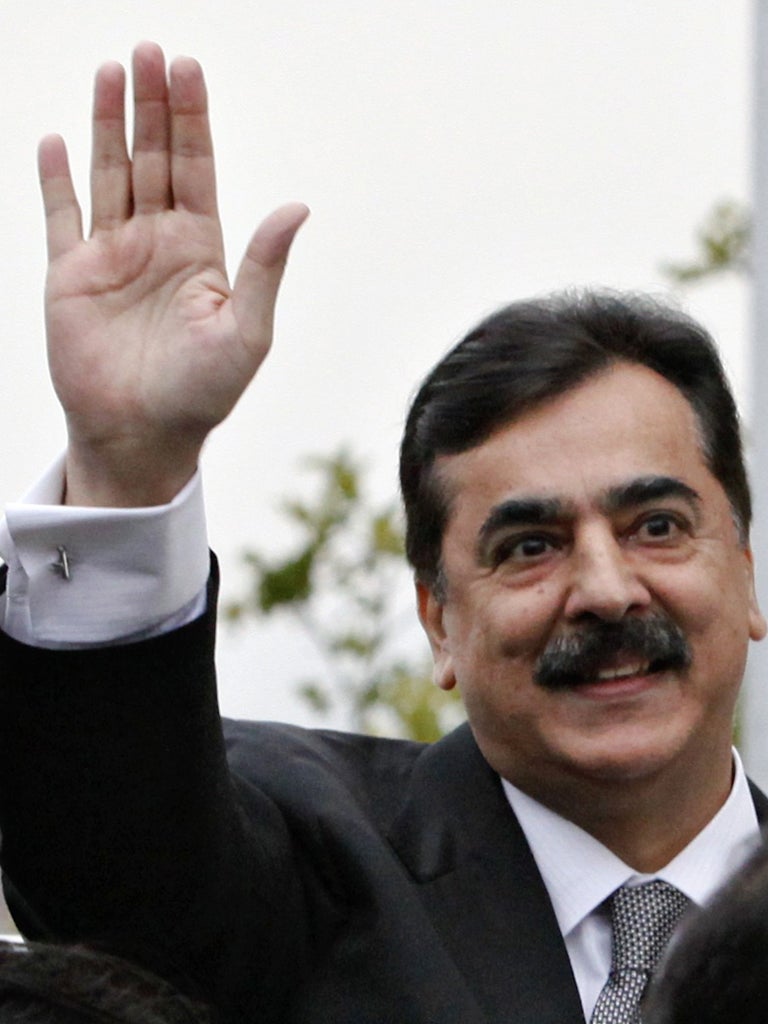
Your support helps us to tell the story
From reproductive rights to climate change to Big Tech, The Independent is on the ground when the story is developing. Whether it's investigating the financials of Elon Musk's pro-Trump PAC or producing our latest documentary, 'The A Word', which shines a light on the American women fighting for reproductive rights, we know how important it is to parse out the facts from the messaging.
At such a critical moment in US history, we need reporters on the ground. Your donation allows us to keep sending journalists to speak to both sides of the story.
The Independent is trusted by Americans across the entire political spectrum. And unlike many other quality news outlets, we choose not to lock Americans out of our reporting and analysis with paywalls. We believe quality journalism should be available to everyone, paid for by those who can afford it.
Your support makes all the difference.The long-simmering face-off between Pakistan’s government and the judiciary finally resulted in action yesterday as the country’s prime minister was formally charged with contempt by the supreme court.
On a day when the capital was lashed by thunder storms, Yousaf Raza Gilani rose to his feet to hear the court allege that he had “wilfully flouted, disregarded and disobeyed the direction” given by judges to request that Swiss authorities reopen a corruption case against president Asif Ali Zardari.
The prime minister, in a dark suit and tie and who had been sitting flanked by leaders of the various parties that make up the ruling coalition, said he was pleading not guilty. “We will make it in writing,” he said, when asked by Justice Nasir Ul-Mulk if he planned to make a defence.
This was not the first time that a prime minister of Pakistan has been called by the court; that has happened on previous occasions. But there is no precedent for the premier being charged with contempt and accused of intentionally ignoring the court’s directions.
As he left the building, driving himself in a white SUV, Mr Gilani was cheered by his supporters. However, there were also those who cheered the action of the judges.
The clash between the judiciary, headed by Chief Justice Iftikhar Chaudhry, has been the latest source of uncertainty for a country often shaken by political turmoil. Defenders of Mr Gilani and the Pakistan People’ Party (PPP) say the court is over-reaching and that the case is driven by personal animosity between Mr Zardari and Mr Chaudhry. Supporters of the actions taken by the court say it is essential the judges be permitted to pursue the corruption case against the president, even if it dates back to the 1990s.
Structurally, Court Number 4, the courtroom in which yesterday’s 30-minute hearing took place could, have benefitted from a touch-up; there were water damage stains on the roof and several pieces of plaster were missing from a wall. But in terms of its leverage and influence, the supreme court has seldom looked sturdier.
Indeed, while Pakistan has become used to the pushing and pulling between civilian governments and the country’s military as either looks for advantage, a clear trend of the last couple of years has been the emergence of a new centre of power focussed around Mr Chaudhry and his bench of justices. The court has been pursuing the corruption case against Mr Zardari since 2009, when it struck down an amnesty issued by former president Pervez Musharraf that benefited around 8,000 people.
Cyril Almeida, a respected columnist with the Dawn newspaper wrote this weekend: “Welcome to the new Pakistan, where power centres are diffuse, outcomes less certain and no grand conspirator to make it all come together, or fall apart, at the appropriate time.”
For Mr Gilani, whose four years in office make him Pakistan’s longest-serving premier, the stakes could not be higher. If convicted, he could be sent to jail for up to six months.
Over the weekend, in an interview with Al Jazeera, he acknowledged, that if he is convicted he cold not continue. “If I’m convicted I’m not supposed to be a member of parliament,” he said, when asked if he would stand down.
Yesterday’s hearing was adjourned for two weeks. For the PPP it seems the strategy will be to drag out the case as long as possible, at least until elections for the upper house of the parliament are completed next month. A number of commentators have suggested the party may be willing to sacrifice Mr Gilani in order to save Mr Zardari, and then seek to call a general election later this year.
Meanwhile, the prime minister’s lawyers are of the belief they can win the legal argument in court. One his barristers, Gohar Ali Khan, told The Independent, that Mr Gilani had sought advice from his law ministry and the attorney-general about the Swiss case and had been advised by both that the president enjoyed immunity and that the case had been shut.
“We are saying that there is therefore no wilfulness,” said Mr Khan. “We are saying he was working with good intentions.”
Join our commenting forum
Join thought-provoking conversations, follow other Independent readers and see their replies
Comments